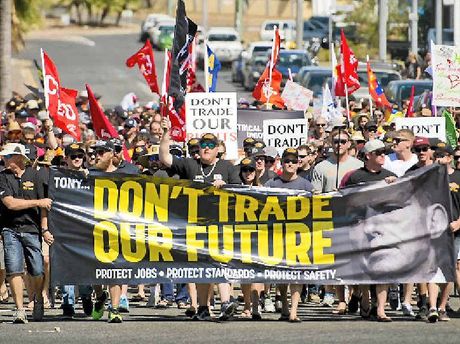Canada free-trade deal with EU points way for Australia

Australian Financial Review | 16 February 2017
Canada free-trade deal with EU points way for Australia
The European Union has a message for Australia, just hours after the continent’s parliament signed a comprehensive trade deal with Canada - these wins are still possible in a Donald Trump world.
As the United States heads towards isolationism with its new administration’s "America first" approach, the EU is eager to trumpet this week’s Strasbourg vote, which shows that even a continent of half a billion people speaking dozens of languages can get their act together.
EU ambassador to Canberra Sem Fabrizi told The Australian Financial Review on Thursday that deal with Canada is seen as the blueprint for a future trade agreement with Australia.
"We hope to launch the negotiation with Australia in the second half of the year," he said, describing the trans-Atlantic deal as the most advanced agreement between advanced economies in history.
The Europeans regard Australia as being very analogous to Canada, with social, cultural and regulatory regimes.
Strasbourg parliamentarians backed the deal on Wednesday after seven years of negotiations to lower tariffs on industrial goods, farm and food shipments, and on opening up services including financial services and telecommunications.
The win, by 408 votes to 254, is being hailed as a direct retort to the Trump administration that Europe and Canada are part of the global move towards towards freer trade, not higher barriers.
Canada’s High Commissioner Paul Maddison, speaking in a joint interview with Mr Fabrizi, said a key feature of the Canada-EU deal was that it includes strong sustainability, environmental and labour market protections.
"Australia, like Canada, are resource rich, large, diverse, maritime trading nations and are champions of a global free-trade agenda.
"We both recognise, Australia and Canada, that we cannot grow economic prosperity, jobs for our middle classes, without continuing to pursue progressive free trade agendas that break down barriers.
A key element of the EU-Canada deal involves a new international court system to hear disputes as an alternative to controversial Investor State Dispute Settlement clauses that have galvanised opposition against many other trade deals, including the marooned Trans Pacific Partnership and agreements between Australia and China, South Korea and Japan.
Mr Fabrizi said the court system was a deliberate move to ensure the trade deal was not "too much for investors."





